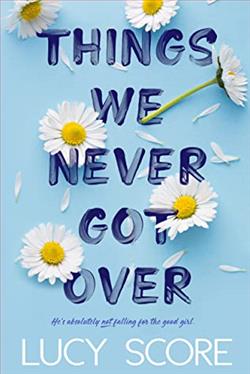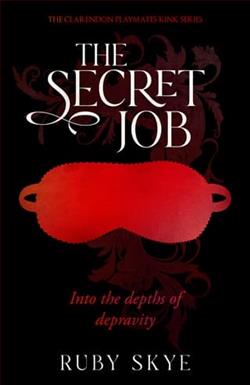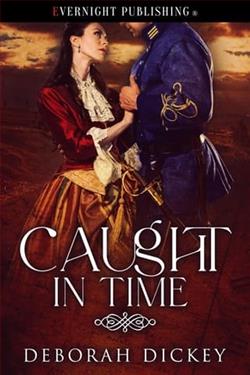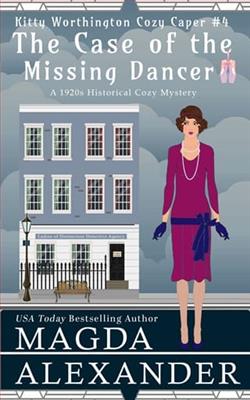Page 74 of The Secrets of Dragonfly Lodge
Nancy studied Anne’s eager face, realizing that her friend had altered, was happier, more sure of herself, more open. She wasn’t bothered by Anne asking such a personal question, but didn’t honestly know the answer. ‘It’s too early to say,’ she said finally and changed the subject.
Later, on the train back to Brandingfield, she considered the matter. James had not talked about marriage and she was relieved. It meant she could push the issue into the future. Life as it was had many advantages. She was doing work she loved and was with a man she loved. That was enough for the time being. Once she’d established herself in her career, thatwould be the time to think about marriage and children. At present, she didn’t think she wanted a family. Certainly, what she’d seen of her sister Helen’s life rather put her off.
Helen’s second little boy, Terence, had been born earlier in the autumn and Nancy had visited her at home. She’d looked exhausted and depressed, was snappish with their mother who went every day to help out. Bobby, Helen said, was no use in the house. In fact, he over-excited two-year-old Andrew every evening so that the child wouldn’t settle at night. What she wanted, she moaned to Nancy, was some time on her own. Five minutes’ peace to have a bath and wash her hair without someone coming in and wanting something.
Remembering this conversation, Nancy groaned aloud. She’d never cope with all that.
‘Are you all right, dear?’ a motherly fellow passenger asked, dragging her out of her reverie.
‘Yes, yes,’ she mumbled, peering anxiously through the dirty window. The train was slowing and soon her station slid into view. ‘Thank you.’ She smiled at the woman. ‘I was daydreaming and would have missed my stop.’
As she walked through the lamplit streets to Frank and Eleanor’s, from time to time she glimpsed the distant, frowning facade of Brandingfield Hall peeping between the houses. The sight made her shiver. Some of its lights were on and, wreathed in fog, the hall and the tumble of buildings around it emitted an unearthly glow the colour of old bone.
In daylight the following morning, Brandingfield, while still shrouded in mist, appeared less threatening, and Nancy’sfootsteps were light as she entered its grand hallway. Having submitted her thesis, she felt as though a great burden had fallen away. There would be the dreaded viva interview to endure after Christmas, when she would have to defend her findings, but fingers crossed all would be well and she would be awarded her doctorate. Now she could work normal hours, focusing properly on her new job and the discoveries she hoped to make. Life was opening out and it was exciting!
Forty-Three
One morning a week later, Nancy paused at her pigeonhole outside the main office and gathered up several thin envelopes, holding them between her teeth as she unlocked the door to the lab. Inside, as the light flickered on, the locusts startled into noisy life. She tossed the letters and her keys on the worktop, hung up her coat and went across to the tank, checking that all was well before reaching into her bag for a package of fresh green leaves.
Her brief from ICP was related to her thesis. The company manufactured insecticides containing organochlorines, in particular DDT.
Now she was to move on and work with the effect of other organochlorines on locusts, and she had started to consider what equipment she’d need in order to conduct her experiments.
She dropped some fresh leaves into the tank and watched the insects feed, fascinated as ever by the speed and efficiencywith which they shredded the greenery until there was nothing left but a few dry stalks.
After adding another handful and securing the tank lid, she remembered the envelopes and drew them towards her. The first she opened was a routine memo about keeping the kitchens tidy. She read it, then tossed it into a basket of scrap paper. The contents of the second envelope piqued her interest. It contained a couple of pages torn out of a scientific publication. There was a note pinned to it in Edmund’s neat handwriting.‘Have you seen this?’he’d written. ‘Not my area, but it might be of interest to you.’He’d signed it impersonally,‘E’.She glanced at the title of the article and stilled;‘Unwanted effects of DDT’. The first line read,‘DDT is considered a panacea for farmers’ ills worldwide, but there are wider issues to consider.’She frowned at the author’s name – it meant nothing to her. An American from some college she hadn’t heard of, either, nor had she come across the magazine in which the article had appeared. It wasn’t an academic periodical, just something the Iowa college produced to inform members about different areas of research. She wondered how Edmund had got hold of it.
She sat down to read the article. It was general in nature, its observations based on interviews with wildlife wardens, farmers and members of the public rather than on rigorous research. The thrust of its argument was not unknown to her, but she’d not seen it expressed so passionately before. Chemical agents containing DDT were not simply killing insects that were considered pests, but useful insects including bees, butterflies and moths. And what of the birds andanimals that fed on insects? Were they affected?‘Further research is needed,’the article ended rather lamely.
Nancy folded the article back into its envelope, her mind working. She remembered what Professor McCall had said about DDT after his lecture on the New Forest. Further research was undoubtedly needed – but who would fund it? Not agricultural bodies or chemical companies, she thought, although perhaps in the future they might profitably develop compounds that killed only certain insects. She couldn’t see presently how that might be achieved, but if there was a will, there could be a way. She glanced at her locusts. No one wanted them eating their crops, certainly, and it was clearly her job to get on with her particular line of research. Leave it to others to worry about the wider effects of toxic compounds designed to save crops and feed poor communities. She remembered what Professor Briggs had once said to her. That science wasn’t about ethics or morals, it was about establishing facts. He’d said it in a general, throwaway fashion and she’d appreciated his point. But after reading the article, the idea made her uneasy. She must talk to Edmund about it. The thought of his measured, kindly attitude was reassuring.
She dropped the article into her wire ‘pending’ basket. She was about to open the final envelope when the door flew open and James entered in a draught of cold air. ‘Good Lord, overslept,’ he muttered, coming to press an icy cheek against hers, then threw his coat over a hook, missed, picked it up and tried again. ‘How d’you get on at Prince’s yesterday?’ he asked, then cutting short her answer said, ‘That chap Staunton from ICP came looking for you. We had quite a chat, actually.’
‘My supervisor?’ she echoed. She looked down at the envelope she held and turned it over. ‘ICP’ was printed in black letters on the front. She opened it to find a handwritten note from Dr Staunton inviting her to see him at her earliest convenience to discuss the progress of her research. The idea didn’t fill her with joy – Staunton was a dry, depressing individual who was a stickler for budgets and rotas, but did not go out of his way to be encouraging.
‘Well, what did the man want?’ James asked later. His eyes were bright with interest.
‘There’s a change of plan.’ Nancy sighed. ‘I must adjust my experiments to include a different pesticide. One of the organophosphates they’ve started to use. It’s called Zalathion. They’re finding it more effective out in the field, but want to find out exactly how it works.’
‘It sounds more purposeful than anything I’m doing,’ James grumbled.
‘You’re building a body of knowledge about your grasshoppers,’ she said absently. ‘And doing it awfully well. Only another year and you’ll be on to something fresh.’ Her mind was already on any changes she might need to make to her methods.
‘Oh, there’s something else.’ She feared his reaction to this piece of news. ‘The building work’s finished and I have to move labs. They want me to join their other researchers.’
His face fell. ‘That’s a shame. A terrible shame.’ He paused. ‘I don’t know what I’ll do without you here. It’ll be dreadfully lonely.’
‘I know, but what can I do? And perhaps it’s a good thing, James. It’ll give us both a chance to concentrate fully on our work.’
Actually, the idea of joining her colleagues rather cheered her. It wasn’t healthy being with James all the time. It could be quite stressful and claustrophobic, in fact. She still loved him as passionately as ever, but it would be a good idea, she concluded, to separate work and pleasure. If only he didn’t appear to be so disappointed.
Forty-Four
‘How is Helen?’ Nancy asked her mother, the Sunday before Christmas. She hadn’t seen her sister for weeks.
Mrs Foster was making mince pies and her hands were sticky with pastry. ‘Pass me the flour, will you?’
Nancy, who was stirring cake mixture, nudged the open tin across. ‘What’s wrong?’















